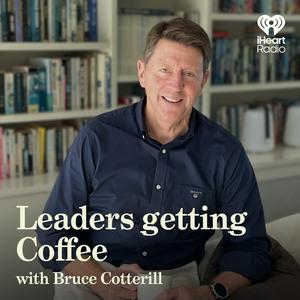In Leaders Getting Coffee episode 55, our guest is the former National Party Minister, Speaker of the House and Ambassador to London, Sir Lockwood Smith.
Sir Lockwood Smith is one of those people you feel you know before meeting him. He first stepped into the public gaze as a television presenter of science programmes aimed at school age children. What started as a university holiday job delivered some early name recognition, helping him to win a seat in the old first part the post political system.
He grew up on the family farm that he still runs today. He learned the ropes early and developed the skills necessary to run the farm before leaving school. A Bachelors and Masters degree (with honours) in Agricultural Science put the theory alongside the practical skills he’d already developed.
At first, he followed what most of us would observe as an academic career, lecturing at Massey University and wining a scholarship to attend the Waite Agricultural Research Institute, at the University of Adelaide, where he studied for his PhD in ruminant metabolism. He tells of studying Opera, as a sideline, while he was there.
While in Adelaide he took up rowing, winning five state championships and leading the Adelaide University Boat Club as it’s captain.
Back in New Zealand, politics was calling and he was elected to parliament as the MP for Kaipara in 1984. He became one of our longest serving MP’s, staying for 29 years, the last five of which were spent as a most respected “Speaker of the House”.
On the Leaders Getting Coffee podcast with Bruce Cotterill, Sir Lockwood speaks of the highs and lows of life in politics. There have been many achievements and the occasional disappointment, and he is refreshingly open in his discussion, including the behind the scenes conflict surrounding leadership appointments.
And he reflects on his time as Speaker of the House and his disappointment at today’s parliamentary behaviour.
He also covers off his five-year stint as our High Commissioner to the United Kingdom, Ghana & Nigeria, and Ambassador to Ireland and the various roles he conducted on behalf of the UK government after his post was completed.
Today, he’s back on the farm that he has operated throughout a busy life, breeding Belgian Blue bulls, a breed that he has continued to develop and enhance over his entire life. He’s a happy and contented man with a wonderful story to tell. And he tells it very well.
See omnystudio.com/listener for privacy information.


